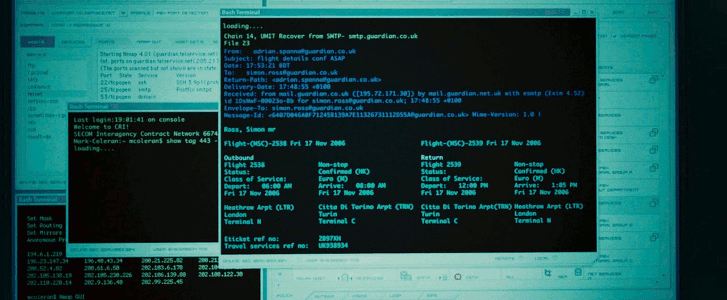10 trucos de Nmap
Nmap (“Network Mapper”) is a free and open
source (license) utility for network
exploration or security auditing. Many systems and network
administrators also find it useful for tasks such as network inventory,
managing service upgrade schedules, and monitoring host or service
uptime.

In addition to my list you can also check out this Comprehensive Guide
to
Nmap here and
of course
the man pages
Here are some really cool scanning techniques using Nmap
1) Get info about remote host ports and OS detection
nmap -sS -P0 -sV -O <target>
Where < target > may be a single IP, a hostname or a subnet
-sS TCP SYN scanning (also known as half-open, or stealth scanning)
-P0 option allows you to switch off ICMP pings.
-sV option enables version detection
-O flag attempt to identify the remote operating system
Other option:
-A option enables both OS fingerprinting and version detection
-v use -v twice for more verbosity.
nmap -sS -P0 -A -v < target >
2) Get list of servers with a specific port open
| **nmap -sT -p 80 -oG – 192.168.1.* | grep open** |
Change the -p argument for the port number. See “man nmap” for different ways to specify address ranges.
3) Find all active IP addresses in a network
nmap -sP 192.168.0.*
There are several other options. This one is plain and simple.
Another option is:
nmap -sP 192.168.0.0/24
for specific subnets
4) Ping a range of IP addresses
nmap -sP 192.168.1.100-254
nmap accepts a wide variety of addressing notation, multiple targets/ranges, etc.
5) Find unused IPs on a given subnet
nmap -T4 -sP 192.168.2.0/24 && egrep “00:00:00:00:00:00″ /proc/net/arp
6) Scan for the Conficker virus on your LAN ect.
nmap -PN -T4 -p139,445 -n -v –script=smb-check-vulns –script-args safe=1 192.168.0.1-254
replace 192.168.0.1-256 with the IP’s you want to check.
7) Scan Network for Rogue APs.
nmap -A -p1-85,113,443,8080-8100 -T4 –min-hostgroup 50 –max-rtt-timeout 2000 –initial-rtt-timeout 300 –max-retries 3 –host-timeout 20m –max-scan-delay 1000 -oA wapscan 10.0.0.0/8
I’ve used this scan to successfully find many rogue APs on a very, very large network.
8) Use a decoy while scanning ports to avoid getting caught by the sys admin
sudo nmap -sS 192.168.0.10 -D 192.168.0.2
Scan for open ports on the target device/computer (192.168.0.10) while setting up a decoy address (192.168.0.2). This will show the decoy ip address instead of your ip in targets security logs. Decoy address needs to be alive. Check the targets security log at /var/log/secure to make sure it worked.
9) List of reverse DNS records for a subnet
| **nmap -R -sL 209.85.229.99/27 | awk ‘{if($3==”not”)print”(“$2″) no |
| PTR”;else print$3″ is “$2}’ | grep ‘(‘** |
This command uses nmap to perform reverse DNS lookups on a subnet. It produces a list of IP addresses with the corresponding PTR record for a given subnet. You can enter the subnet in CDIR notation (i.e. /24 for a Class C)). You could add “–dns-servers x.x.x.x” after the “-sL” if you need the lookups to be performed on a specific DNS server. On some installations nmap needs sudo I believe. Also I hope awk is standard on most distros.
10) How Many Linux And Windows Devices Are On Your Network?
sudo nmap -F -O 192.168.0.1-255 | grep "Running: " > /tmp/os; echo "$(cat /tmp/os | grep Linux | wc -l) Linux device(s)"; echo "$(cat /tmp/os | grep Windows | wc -l) Window(s) devices"
Hope you have fun, and remember don’t practice these techniques on machines or networks that are not yours.
fuente : http://blog.urfix.com/10-cool-nmap-tricks-techniques/
